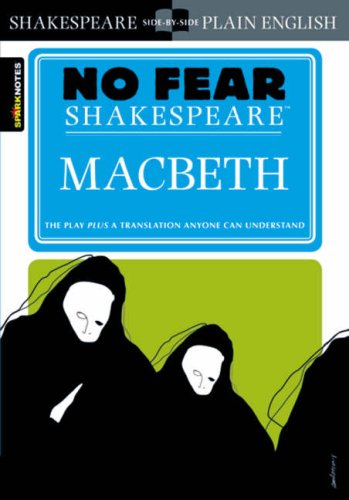Macbeth Sparknotes
Oct 11, 2010 Check out Shakespeare's Macbeth Video SparkNote: Quick and easy Macbeth synopsis, analysis, and discussion of major characters and themes in the play.

Act 1, Scene 1 On a heath in Scotland, three witches, the Weird Sisters, wait to meet Macbeth amidst thunder and lightning. Their conversation is filled with paradox and equivocation: they say that they will meet Macbeth 'when the battle's lost and won' and when 'fair is foul and foul is fair' (10).
Act 1, Scene 2 The Scottish army is at war with the Norwegian army. Duncan, king of Scotland, meets a captain returning from battle. The captain informs them of Macbeth and Banquo's bravery in battle.
He also describes Macbeth's attack on the castle of the treacherous Macdonald, in which Macbeth triumphed and planted Macdonald’s head on the battlements of the castle. Torrent Homepage Builder 1789 on this page. The Thanes of and Angus enter with the news that the Thane of Cawdor has sided with Norway. Duncan decides to execute the disloyal thane and give the title of Cawdor to Macbeth. Act 1, Scene 3 The Weird Sisters meet on the heath and wait for Macbeth.
He arrives with Banquo, repeating the witches' paradoxical phrase by stating 'So foul and fair a day I have not seen' (36). The witches hail him as 'Thane of Glamis' (his present title), 'Thane of Cawdor' (the title he will soon receive officially), and 'king hereafter' (46-48).
Their greeting startles and seems to frighten Macbeth. When Banquo questions the witches as to who they are, they greet him with the phrases 'Lesser than Macbeth and greater,' 'Not so happy, yet much happier,' and a man who 'shall get kings, though [he] be none' (63-65). When Macbeth questions them further, the witches vanish into thin air. Almost as soon as they disappear, Ross and Angus appear with the news that the king has granted Macbeth the title of Thane of Cawdor. Macbeth and Banquo step aside to discuss this news; Banquo is of the opinion that the title of Thane of Cawdor might 'enkindle' Macbeth to seek the crown as well (119). Macbeth questions why such happy news causes his 'seated heart [to] knock at [his] ribs / Against the use of nature,' and his thoughts turn immediately and with terror to murdering the king in order to fulfill the witches' second prophesy (135-36).
When Ross and Angus notice Macbeth's distraught state, Banquo dismisses it as Macbeth's unfamiliarity with his new title. Act 1, Scene 4 Duncan demands to know whether the former Thane of Cawdor has been executed. His son Malcolm assures him that he has witnessed the former Thane’s becoming death. While Duncan muses about the fact that he placed 'absolute trust' in the treacherous Thane, Macbeth enters.
Duncan thanks Macbeth and Banquo for their loyalty and bravery. He consequently announces his decision to make his son Malcolm the heir to the throne of Scotland (something that would not have happened automatically, since his position was elected and not inherited). Duncan then states that he plans to visit Macbeth at his home in Inverness. Macbeth leaves to prepare his home for the royal visit, pondering the stumbling block of Malcolm that now hinders his ascension to the throne. The king follows with Banquo.
Act 1, Scene 5 At Inverness, Lady Macbeth reads a letter from Macbeth that describes his meeting with the witches. She fears that his nature is not ruthless enough-- he's 'too full o' th' milk of human kindness” (15)—to murder Duncan and assure the completion of the witches' prophesy. He has ambition enough, she claims, but lacks the gumption to act on it. She then implores him to hurry home so that she can 'pour [her] spirits in [his] ear' (24)—in other words, goad him on to the murder he must commit. When a messenger arrives with the news that Duncan is coming, Lady Macbeth calls on the heavenly powers to 'unsex me here' and fill her with cruelty, taking from her all natural womanly compassion (39).
When Macbeth arrives, she greets him as Glamis and Cawdor and urges him to 'look like the innocent flower, / but be the serpent under’t' (63-64). She then says that she will make all the preparations for the king's visit and subsequent murder. Act 1, Scene 6 Duncan arrives at Inverness with Banquo and exchanges pleasantries with Lady Macbeth. The king inquires after Macbeth's whereabouts and she offers to bring him to where Macbeth awaits. Act 1, Scene 7 Alone on stage, Macbeth agonizes over whether to kill Duncan, recognizing the act of murdering the king as a terrible sin. He struggles in particular with the idea of murdering a man—a relative, no less—who trusts and loves him.